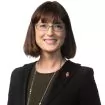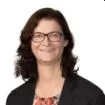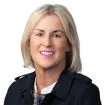The World Economic Forum's Global Gender Gap Report 2021 estimates that at the current rate of progress it will take more than two and a half centuries to close the worldwide gender gap in economic participation and opportunity, with Australia ranked 70 out of 156 countries. Although the proportion of skilled women in the workforce continues to increase, in 2020 the Australian Government's Workplace Gender Equality Agency reported that women occupy only 32.5% of key management positions in Australian workplaces.
Based on these statistics alone, it would be easy to view the task of edging our way toward gender parity as practically unattainable, especially as the COVID-19 pandemic largely hobbled global progress. However, there is real hope. According to Saadia Zahidi, Managing Director and Head of the Centre for the New Economy and Society, employers now have a unique and unprecedented opportunity to contribute to gender parity by "investing in inclusive workplaces...advancing women's rise to leadership positions, applying a gender lens to reskilling and redeployment and embedding gender parity into the future of work." There is plenty of work to do, and with genuine, coordinated effort by employers, both the gap and the time it takes to achieve parity can be shortened significantly.
To celebrate International Women's Day 2022 (IWD) we asked Seyfarth Australia's female leaders to offer their insights on what we can do to #BreakTheBias in order to achieve equality and inclusivity.
How employers can play a role in forging gender parity
Erin Hawthorne, employment law partner in Seyfarth's Melbourne office, says it's important that employers take a hands-on approach to parity. "Leading employers who have moved past male/female same-work-same-pay concerns have the opportunity to commit to what 'gender parity' looks like in their organisation and set concrete steps to implement it." This will look different to different organisations, for example, Erin notes that "for some organisations, it might be reflected in short term quotas at senior levels. Other organisations might look to change behaviour so that factors that can drive longer-term unequal outcomes (such as work specialisation, career breaks, part-time work or flexibility) have a much more even distribution among workers of all genders." Erin acknowledges that "these issues are complex, but regardless of whether the 'parity' objective is based on equal treatment or equity of outcome, leading employers can take a stand to create momentum for real change."
Sarah Goodhew, workplace health and safety partner in Seyfarth's Sydney office, recognises that "gender parity isn't a female-only issue. Gender parity and flexibility in the workplace is often needed for reasons beyond parenthood, by all genders." This goes to IWD's focus on ensuring all genders are involved and engaged, too. "Once leading employers recognise and support this, and have systems in place to entrench gender parity in their working arrangements, such as rewards systems and processes generally, then all genders will be able to achieve their personal and professional goals."
Rachel Bernasconi, employment law partner in Seyfarth's Sydney office, says "we at Seyfarth pride ourselves on asking 'is there a better or different way to do something?' not just approaching problems with a mindset of 'this is how it has always been done'. We call this No Sheep, which is shorthand for not following the flock. Ask the equivalent of 'the Seyfarth question' in your organisations to help tackle these issues." Taking an out-of-the-box approach is the mark of true leadership and courage - as Rachel points out "when you apply this thinking within your organisation to these issues, as we do often at Seyfarth, real and lasting change can come about."
Advice for females aspiring to leadership in the workplace
Our partners have some very sage advice for women looking to become our future leaders.
Penny Stevens, workplace health and safety partner in Seyfarth's Melbourne office, says to focus on your strengths and learn from those who inspire you. "Learn from other leaders you admire. Be confident in your own ability and tell yourself every day you are great at what you do. If you focus on what you do best you will succeed."
Erin's advice is to have a bold goal - it's vital to "start small and dream big." Erin suggests that being clear on your goals is also key and that by "thinking about the kind of leader you would like to be will give you the vision to pursue goals by utilising strategic stepping stones whilst staying true to yourself." Erin also suggests that unnecessary self-doubt can inhibit progress. "Do not assume you are 'doing it wrong' unless you have data to back that up and, if you do, course-correct with those goals in mind."
Sarah believes that it's important to know the journey won't always be smooth and advises future leaders to "be prepared for inevitable setbacks, but don't let that mean you take 'no' as the answer." A network of genuine supporters is also important. "Surround yourself with supporters who align with your values, your goals, and who also understand your context." Sarah also warns that "the best advice that doesn't work for you, won't work for you. Be comfortable with the fact you might be doing something differently to the way 'it's always been done' by others in your network - changes will happen, even if incrementally."
Rachel advocates for courage and resourcefulness. She says, "If you're given an opportunity grab onto it with both hands rather than questioning whether you are good enough or ready enough."
IWD's theme for this year is #BreakTheBias. For more IWD information and resources, please visit www.internationalwomensday.com.
The content of this article is intended to provide a general guide to the subject matter. Specialist advice should be sought about your specific circumstances.




